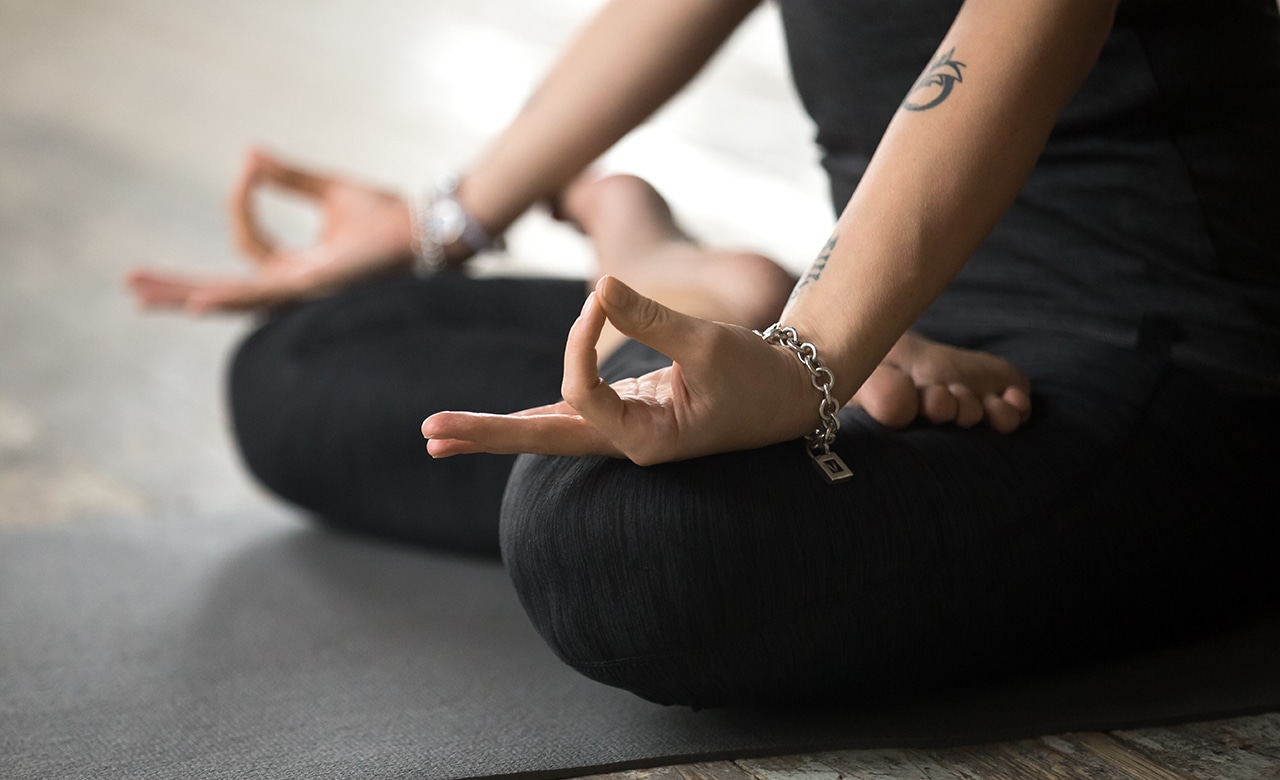
Spirituality
Power of Padmasana
Shiva in Hinduism, Buddha in Buddhism, or Tirthankaras in Jainism. May it be their sculptures or paintings, what do you see a common thing in them? They always will be sitting in a crossed-legged position, with their eyes closed, meditating. The pose – Padmasana has now become a symbol of Yoga, health, and spirituality. In this blog, we will be discussing the tremendous Yogic posture of padmasana.
Attaining enlightenment is considered the final stop in spirituality, and meditation plays a vital role in that. Patanjali, the well-known author of Yoga Sutra, says that the best pose for meditation to achieve enlightenment is –Padmasana.
The Padma is a Sanskrit term that means lotus. Asana means the sitting pose. Therefore, Padmasana translates to a Lotus pose. Constructed in the 12th century, the legendary Yogic text of Goraksha Sataka describes 84 different poses for comfortable sitting, and padmasana being the best among them. Even though used widely as a Yoga symbol, one must have a certain flexibility, open hips, healthy knees, and practice to perform this easy-looking pose.
Lotus has a high place in spirituality, in Hinduism, Jainism, Buddhism, and Tantra sect, and so does the pose associated with it. In padmasana, you sit straight on the floor, crossing your legs, and locking your feet in the crooks of the hips, resembling the folded lotus. While performing the pose, your eyes must be closed, soles and palms must be facing the sky, with a straight spine. That’s how you perform the padmasana.
In excruciating detail, Patanjali has described the importance of a padmasana.
In his Yoga sutra texts, Patanjali describes an ideal pose for meditation as
स्थिरसुखमासनम् || तस्मिन् सति श्वासप्रश्वास्योर्गतिविच्छेदः प्राणायामः ॥
Meditation performed in a relaxed manner yields harmony of the mind and body. Once you have achieved physical harmony through inhaling and exhaling, you will begin harmonizing your energy.
Steps to perform padmasana:
-Start the posture by sitting down on the floor, preferably on a yoga mat. Spread the legs in front of you.
-Lifting the left leg, placing it on the right thigh, and doing the same with the right leg. Please do not force it at any point.
Ensure that you put your heels as close as possible to your abdomen, keeping your spine straight.
-Place your hands in your favorite Mudra gesture. For meditation, it’s best to put your hands on your laps, facing your palms upwards.
-Inhale and exhale deeply, focusing on your breath.
There are various versions available for padmasana. You can try them, and find the best one which works for you. The key here is practice. Different Mudras open different chakras in your body, and if you perform them while being in padmasana, they multifold the energy flow.
Physical benefits of Padmasana:
-Padmasana is known to stimulate blood flow to the pelvis, spine, abdomen, and bladder.
It regulates the body’s fluids, cures abdominal diseases, and helps a woman during menstruation.
-Considered as the base for all the yoga poses, padmasana is a great way to stretch knees and ankles, which help to strengthen the joints.
-Being the most straightforward posture to practice, this asana helps lose weight and strengthen the lower body.
-Padmasana has been proven effective against indigestion and muscular cramps.
-Especially effective against the sedentary lifestyle, padmasana is known for straightening up the spinal cord and developing a good posture.
Spiritual benefits:
-In padmasana, the spinal cord, brain, and chakras get in a straight position, making them more open to healing and balancing.
-Paired with steady breathing, the padmasana pose frees up the mind by expelling the negativity and filling the subconscious with positive thoughts, calming down the brain.
-Straight spine, closed eyes, and steady breathing enhances focus and alertness. When practiced regularly, it’s known to enhance the awareness of the practitioner.
-Kundalini is the energy lying dormant at the base of your spine. Padmasana is the posture in which awakens that stagnant energy, activating the seven chakras of the body.
-Sitting in the chair is known to make the mind dull as gravitational force pulls you down. However, in the lotus pose, the spinal cord is aligned perfectly against gravity, producing lightness.
-As the souls and palms face upwards during padmasana, it makes you more receptive to the cosmic energies as compared to sitting in the chair, which discharges that energy into the earth through the toes pointing ground.
To stay connected and to receive information about upcoming spiritual events, please subscribe to our mailing list.
We hope this blog helped you understand the power lying within the Yoga pose padmasana. In case of any queries, please write to us at info@chamundaswamiji.com.
Post a Comment
-
Subscribe to Our Blog
-
Categories
-
Popular Articles
- Dead moth in the house. What universe is trying to tell you?
- Spiritual Meaning of Moth
- Vivah Bandhan Curse – What Is It and How to Spiritually Heal It.
- What are Beej Mantras?
- The Dasa Mahavidyas
- Tripura Sundari | The Dasa Mahavidya
- Maa Bhuvaneshwari | The Dasa Mahavidyas
- Ramakrishna Paramhansa – The Man who almost became a Woman
- The Five Shades of Tantra
- Maa Chinnamasta | The Dasa Mahavidyas



